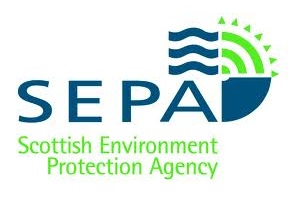 |
| Related Articles |
|
|
The amount of waste from Scottish homes and businesses being landfilled has dropped by almost 36% in the past five years, with the amount of waste generated falling and waste recycling increasing.
Information reported by the Scottish Environment Protection Agency (SEPA) in its annual Waste Data Digest shows that:
- between 2005 and 2009, the total amount of waste generated fell by 22%;
- the total amount of controlled waste landfilled in Scotland dropped from 7.3 million tonnes in 2005 to 4.7 million tonnes in 2009;
- between 2005 and 2009, the amount of biodegradable waste landfilled fell by 26%;
- waste treated by waste management sites in Scotland rose by 30% over the past five years, as waste to landfill figures fell;
- the amount of household waste recycled and composted grew by 45% between 2005 and 2009.
The full figures are available in the Waste Data Digest 11 Key facts and trends, published by SEPA today (18 July 2011).
Martin Marsden, Head of Environmental Quality at SEPA, said:
“The conclusions from these latest figures are very encouraging and show that, as a nation, we are producing less waste, recycling more and landfilling less – all of which is good news for protecting the environment.
“SEPA’s annual Waste Data Digest delivers accurate up-to-date data on waste to as wide an audience as possible. It is important that we continue to provide good quality data and to drive the implementation of the recently published Waste Data Strategy for Scotland.
“There are still challenges ahead and we must all accept that new services, facilities and, most importantly, changes to our lifestyles will be needed if we are to further prevent, reuse and recycle our waste in Scotland. We will be working with the Scottish Government and Zero Waste Scotland, the waste management industry and Scottish local authorities to help make that happen.”
SEPA reports a wide range of waste management data for a variety of statutory purposes. Much of these data are published in the Waste Data Digest. Data are reported on specific waste types, such as municipal, hazardous, and commercial and industrial wastes and by waste management method.
Waste Data Digest 11 can be found here.




